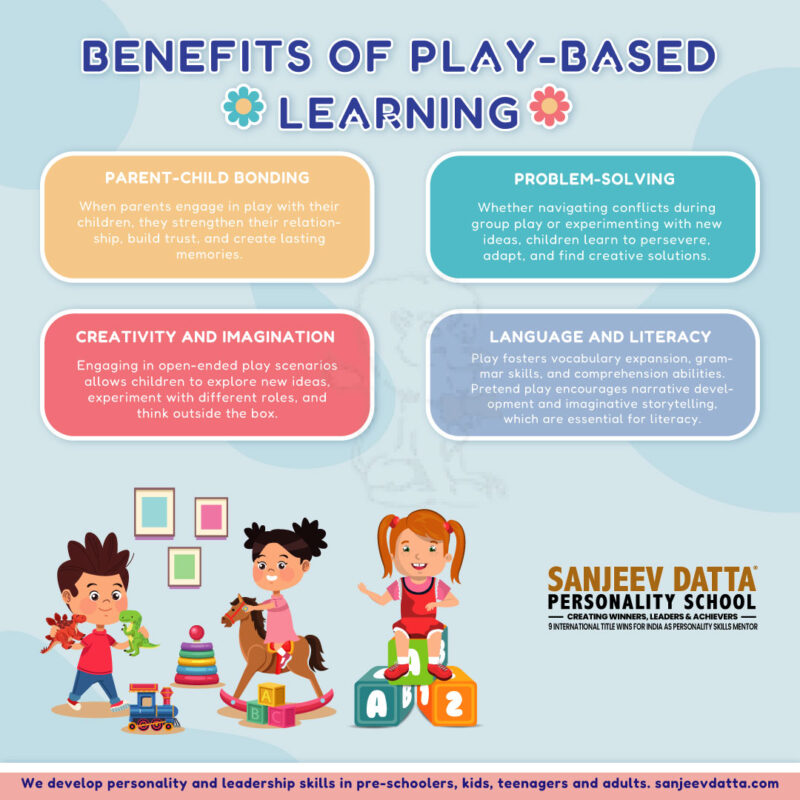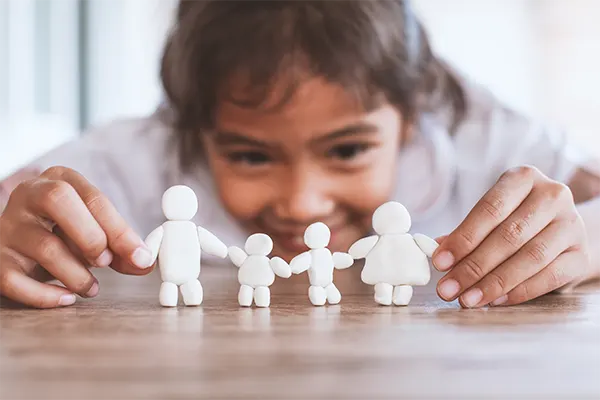Social conditioning, often viewed with skepticism and criticism, holds within it a multitude of benefits that contribute to personal development and societal cohesion. While the term might evoke images of manipulation or conformity, the truth is far more nuanced. Social conditioning, at its core, is the process through which individuals learn the norms, values, behaviors, and social skills necessary to function effectively within their society. It shapes our identities, influences our decisions, and helps create a sense of belonging and purpose. In this article, we will explore the positives of social conditioning, shedding light on its role in fostering harmony, ethical behavior, and personal growth.
Introduction
Imagine a world without social norms, where each individual acts solely based on personal whims without regard for the collective good. Chaos and disorder would likely ensue, as societal structure relies heavily on shared understanding and cooperation. This is where the positives of social conditioning come into play. Social conditioning, though often perceived negatively due to its association with conformity, actually provides a framework that facilitates the smooth functioning of communities. It helps inculcate essential values, fosters social cohesion, and promotes personal development by guiding behavior and decision-making. As we delve deeper into this subject, it becomes evident that social conditioning is not merely a tool of control but a vital mechanism for personal and societal well-being.
Understanding Social Conditioning
Before diving into the positives, it’s crucial to understand what social conditioning entails. Social conditioning is the process by which individuals learn and internalize the norms and values of their society. This learning occurs through various means, including family upbringing, education, media, and peer interactions. From a young age, individuals are taught what is considered acceptable behavior, what roles they are expected to play, and how to interact with others.

The Role of Social Conditioning in Personal Development

1. Formation of Identity
One of the most significant positives of social conditioning is its role in shaping personal identity. From childhood, individuals are exposed to cultural norms, traditions, and values that help define who they are. This process of identity formation is crucial for self-awareness and self-acceptance. For instance, a child growing up in a culture that values community and cooperation learns to see themselves as part of a larger whole, which can instill a sense of purpose and belonging.
2. Moral and Ethical Development
Social conditioning plays a pivotal role in the development of moral and ethical standards. Through interactions with family, teachers, and peers, individuals learn the difference between right and wrong. This moral framework guides behavior and decision-making throughout life. For example, teachings about honesty, respect, and responsibility are often ingrained through social conditioning, helping individuals navigate complex social situations with integrity.
3. Development of Social Skills
Effective communication, empathy, and conflict resolution are essential social skills that are largely developed through social conditioning. By observing and interacting with others, individuals learn how to express themselves, understand different perspectives, and manage disagreements constructively. These skills are vital for building and maintaining healthy relationships, both personally and professionally.
Visit: benefits of digital detox
Social Conditioning and Social Cohesion

1. Promoting Social Harmony
One of the primary benefits of social conditioning is its ability to promote social harmony. Shared norms and values create a common ground that facilitates understanding and cooperation among individuals. This collective agreement on what is considered acceptable behavior helps prevent conflicts and fosters a sense of community. For instance, societal norms around politeness and respect contribute to peaceful coexistence and mutual respect.
2. Establishing Social Order
Social conditioning helps establish and maintain social order by defining roles and expectations within a society. This structured approach ensures that individuals know their responsibilities and the consequences of their actions, which helps prevent chaos. For example, laws and regulations are a form of social conditioning that promotes order by outlining acceptable behavior and penalties for violations.
3. Encouraging Civic Engagement
Civic engagement and participation in community activities are often encouraged through social conditioning. When individuals are conditioned to value civic responsibility and community service, they are more likely to contribute to the betterment of their society. This active participation helps build stronger, more resilient communities. For instance, volunteering and voting are behaviors often promoted through social conditioning, contributing to the overall health of a democracy.
Social Conditioning in the Workplace

1. Fostering Teamwork and Collaboration
In the workplace, social conditioning can promote teamwork and collaboration by instilling a culture of cooperation and mutual support. Employees conditioned to value teamwork are more likely to work effectively with others, leading to increased productivity and innovation. For example, corporate cultures that emphasize collaboration and collective success create environments where employees feel supported and motivated to contribute their best efforts.
2. Enhancing Professionalism
Professionalism, including punctuality, dress code adherence, and respectful communication, is often a product of social conditioning. These behaviors are critical for creating a respectful and efficient work environment. For instance, conditioning employees to adhere to professional standards ensures that interactions are conducted with respect and courtesy, which can reduce workplace conflicts and improve overall job satisfaction. Boost Your Confidence and Charisma: Discover the Secrets to Personal Success! Join our personality development course and learn how to present yourself with poise, handle social situations effortlessly, and leave a lasting impression on everyone you meet.
3. Promoting Ethical Practices
Ethical business practices are frequently reinforced through social conditioning within organizations. Companies that emphasize integrity and ethical behavior in their training and corporate culture help ensure that employees make decisions that align with these values. This not only builds trust with customers and clients but also enhances the company’s reputation. For example, conditioning employees to prioritize ethical considerations can lead to more transparent and honest business practices.
The Role of Education in Social Conditioning

1. Instilling Knowledge and Values
Education systems play a crucial role in social conditioning by imparting knowledge and instilling values. Schools and universities are not just places for academic learning but also environments where students learn social norms and develop critical thinking skills. For instance, through history and social studies, students learn about cultural heritage and civic responsibilities, shaping informed and responsible citizens.
2. Promoting Inclusivity and Diversity
Modern educational institutions often emphasize the importance of inclusivity and diversity, conditioning students to appreciate and respect differences. This promotes a more inclusive society where diversity is seen as a strength rather than a barrier. For example, curricula that include diverse perspectives and multicultural education help students develop a more comprehensive understanding of the world and foster empathy toward others.
3. Encouraging Lifelong Learning
The value of lifelong learning is often instilled through social conditioning in educational settings. By encouraging curiosity and a love for learning, educators condition students to pursue knowledge continuously, which is essential for personal and professional growth. For instance, programs that promote continuous education and skill development help individuals stay adaptable and competitive in an ever-changing job market.
Visit: parenting tips for 2024
Social Conditioning in Cultural Contexts

1. Preserving Cultural Heritage
Social conditioning helps preserve cultural heritage by passing down traditions, customs, and values from one generation to the next. This transmission of culture helps maintain a sense of identity and continuity within communities. For example, cultural festivals and rituals, often learned through social conditioning, play a vital role in keeping cultural traditions alive.
2. Fostering National Unity
In multicultural societies, social conditioning can foster national unity by promoting a shared national identity and common values. This helps bridge cultural differences and create a sense of belonging among diverse groups. For instance, national symbols, anthems, and public holidays are tools of social conditioning that promote a sense of national pride and unity.
3. Encouraging Social Responsibility
Cultural conditioning often emphasizes the importance of social responsibility and collective welfare. By conditioning individuals to think beyond their personal interests, societies can promote actions that benefit the greater good. For example, in many cultures, communal support and helping those in need are deeply ingrained values that encourage individuals to contribute to the well-being of their community.
The Positives of Social Conditioning in Child Development

1. Building Social Competence
Social conditioning is crucial in building social competence in children. Through interactions with parents, teachers, and peers, children learn essential social skills such as sharing, cooperation, and empathy. These skills are fundamental for developing positive relationships and functioning effectively in social settings. For example, children who are taught to take turns and share are more likely to develop strong friendships and work well with others.
2. Promoting Emotional Intelligence
Emotional intelligence, which includes the ability to understand and manage emotions, is often developed through social conditioning. Children who are conditioned to recognize and express their emotions in healthy ways are better equipped to handle stress and build meaningful relationships. For instance, teaching children to communicate their feelings and empathize with others can lead to greater emotional resilience and stronger interpersonal connections.
3. Encouraging Academic Achievement
Positive social conditioning can encourage academic achievement by promoting values such as perseverance, responsibility, and a love for learning. When children are conditioned to value education and hard work, they are more likely to succeed academically. For example, parents and teachers who emphasize the importance of education and provide supportive learning environments help children develop a strong foundation for lifelong learning. Make your child learn to navigate life’s challenges with resilience, build meaningful relationships, and create a positive, impactful presence in both your personal and professional spheres with the help of our classes for personality development for kids.
Social Conditioning and Mental Health

1. Reducing Stigma
Social conditioning can play a significant role in reducing the stigma associated with mental health issues. By conditioning individuals to view mental health as an important aspect of overall well-being, societies can promote more open discussions and greater acceptance of mental health challenges. For example, public awareness campaigns and education about mental health can help break down barriers and encourage individuals to seek help when needed.
2. Promoting Positive Coping Mechanisms
Through social conditioning, individuals can learn positive coping mechanisms for dealing with stress and adversity. This includes techniques such as mindfulness, exercise, and seeking social support. For instance, conditioning individuals to practice self-care and reach out for help when experiencing difficulties can lead to better mental health outcomes and greater resilience.
3. Fostering a Supportive Environment
Creating a supportive environment through social conditioning can significantly impact mental health. When individuals are conditioned to support and care for one another, it creates a network of social support that can help mitigate the effects of stress and trauma. For example, communities that emphasize compassion and mutual aid provide a safety net for individuals facing mental health challenges.
Visit: how to deal with toxic relationships
Conclusion
In conclusion, the positives of social conditioning extend far beyond the often highlighted negatives of conformity and control. Social conditioning plays a vital role in shaping personal identities, promoting ethical behavior, and fostering social cohesion. It helps build essential social skills, encourages civic engagement, and supports personal development. Through education and cultural transmission, social conditioning preserves cultural heritage and promotes inclusivity. In the workplace, it fosters teamwork and professionalism, while in child development, it builds social competence and emotional intelligence. Furthermore, social conditioning can positively impact mental health by reducing stigma, promoting positive coping mechanisms, and fostering supportive environments. By understanding and harnessing the positives of social conditioning, individuals and societies can create a more harmonious, ethical, and supportive world.
As we navigate the complexities of modern life, it is essential to recognize the value of social conditioning in fostering personal growth and societal well-being. Embracing the positives of social conditioning allows us to build stronger, more resilient communities where individuals can thrive and contribute meaningfully to the collective good.
Why Sanjeev Datta Personality School?
- Interview Training
- Leadership
- Presentation Training
- Social Boldness
- Dressing Etiquette
- Office Etiquette
- Communication Skills
- English Speaking
- Anger Management
- Time Management
- Team Building
- Performance Enhancer
- Soft Skills
- Goal Setting
- Career Counselling
- Student Subject Choice Counselling
- Listening Skills
- Video Presentation
- Meditation
For more details, contact us now!


